Sorry. We did not find anything.
Exploring the Future: How Ev Pickup Trucks Are Revolutionizing Sustainable Transportation
The emergence of EV pickup trucks marks a significant shift in the landscape of sustainable transportation, heralding a new era for both consumers and industries alike. As traditional internal combustion engine vehicles face increasing scrutiny over their environmental impact, manufacturers are racing to develop electric alternatives that not only meet but exceed customer expectations. EV pickup trucks combine the rugged utility and versatility expected of traditional pickups with the environmental benefits of electric power, offering zero emissions and lower operating costs. This article delves into the various aspects of how EV pickup trucks are transforming the market, from advanced battery technology to innovative design features, and explores the potential implications for the future of transportation. By embracing this revolutionary shift, we can pave the way for a more sustainable and eco-friendly driving experience that benefits both our planet and our communities.

The Shift to Electric: Understanding the Growth of EV Pickup Truck Market Share
The growth of the EV pickup truck market is experiencing a significant transformation despite facing challenges. While some prominent automakers have decided to scale back or cancel their electric pickup projects due to fluctuating demand, the potential for the segment remains robust. This is particularly true in regions like India, where the burgeoning electric vehicle market is projected to expand rapidly. The increasing consumer acceptance of electric pickups alongside government incentives is likely to play a crucial role in shaping the future of sustainable transportation in these emerging markets.
Moreover, established manufacturers are still making strides in electric vehicle sales, with some reporting substantial increases in their electric offerings. This suggests that while certain brands may retreat, there is a broader shift towards electric pickups that could solidify their place in the market. The ongoing transition to electric transportation is not just a trend; it signals a deeper change in consumer preferences and industry standards. As the landscape evolves, the focus will need to remain on innovation and adaptability, ensuring that the electric pickup segment continues to meet the diverse needs of drivers.
Growth of EV Pickup Truck Market Share (2018-2023)
This chart illustrates the increasing market share of electric pickup trucks over the past five years, highlighting the shift towards sustainable transportation solutions.
Key Players in the EV Pickup Truck Industry and Their Innovations
The electric vehicle (EV) pickup truck market is poised for substantial growth as key players innovate to enhance sustainability in transportation. With the global pickup truck market expected to rise from $229.85 billion in 2025 to $333.34 billion by 2032, reflecting a compound annual growth rate of 5.5%, the surge is largely driven by the increasing demand for eco-friendly options among consumers. Automakers are responding with cutting-edge technologies and designs, focusing on producing trucks that deliver both performance and reduced environmental impact.

Leading manufacturers in the industry are developing various strategies to capture market share. They are emphasizing the integration of advanced battery technologies, seamless charging solutions, and increased range capabilities, all aimed at addressing consumer concerns related to distance and charging infrastructure. Innovations such as regenerative braking and lightweight materials are also being implemented to maximize efficiency, setting the stage for a new era of sustainable pickup trucks that meet modern demands while minimizing emissions.
Analyzing Consumer Trends: Why Buyers are Choosing Electric Over Gas Trucks
The electric vehicle (EV) pickup truck market is witnessing a remarkable transformation, with consumers increasingly gravitating towards electric models over traditional gas trucks. This shift is highlighted by data indicating that the global pickup truck market size is anticipated to grow from $229.85 billion in 2025 to $333.34 billion by 2032, representing a compound annual growth rate (CAGR) of 5.5%. This growth suggests not only a robust demand for pickups but also a significant opportunity for electric models that align with consumer preferences for sustainability.
As the electric pickup market gains momentum, consumer trends reveal a preference for models that combine performance with eco-friendliness. The recent emergence of electric pickups reflects a broader automotive industry shift towards sustainability, with buyers increasingly valuing the lower environmental impact and operational costs associated with EVs. Furthermore, innovations in technology and design are attracting adventurous consumers eager for versatile vehicles that meet both recreational and practical needs. Consequently, the rise of new electric models, including futuristic designs, is set to reshape perceptions and increase market share in regions like the Middle East, where affordability and high-quality features are becoming paramount to buyers.
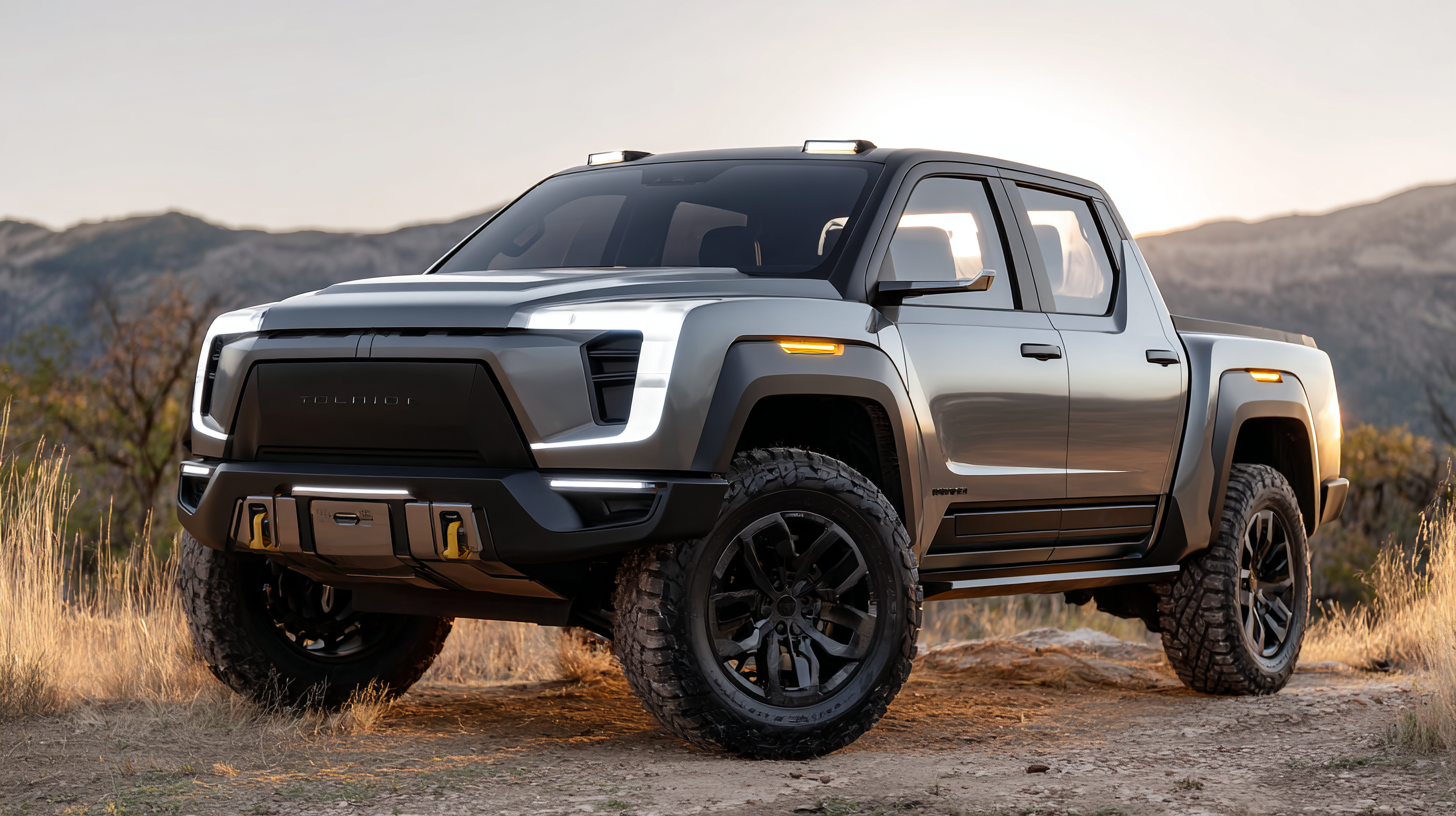
Environmental Impact: The Role of EV Pickup Trucks in Reducing Carbon Emissions
The rise of electric vehicle (EV) pickup trucks marks a significant shift in sustainable transportation, particularly concerning the reduction of carbon emissions. Traditional gas-powered trucks contribute substantially to greenhouse gas emissions, impacting air quality and contributing to climate change. In contrast, EV pickup trucks operate on electricity, which can be generated from renewable sources, effectively minimizing their carbon footprint. By transitioning to electric models, manufacturers are not only addressing the environmental concerns but also appealing to the growing consumer demand for eco-friendly vehicles.
Moreover, the advancements in battery technology have made it possible for EV pickup trucks to offer enhanced performance without compromising on utility. The zero-emissions advantage means that users can enjoy the capabilities of a pickup, such as towing and hauling, while simultaneously supporting sustainable practices. As more consumers opt for electric trucks, we can anticipate a gradual yet impactful shift in industry standards.
This evolution not only benefits individual users by providing cleaner transportation options but also contributes to broader societal efforts aimed at achieving net-zero emissions in the automotive sector.
Future Projections: Expected Advances in Battery Technology for EV Pickup Trucks
The future of electric vehicle (EV) pickup trucks is poised for significant advancements, particularly in battery technology. According to a report by BloombergNEF, the cost of lithium-ion batteries is expected to drop by nearly 60% by 2030, which will play a pivotal role in making EV pickups more affordable and accessible to the mainstream market. These advancements will not only enhance range and performance but also facilitate the integration of larger battery packs suitable for the needs of commercial users, who often demand robust charge capacity for long-distance hauling.
Furthermore, improvements in solid-state battery technology are in the pipeline, with projections suggesting that production could ramp up significantly by 2025. Solid-state batteries promise to offer higher energy density, faster charging times, and improved safety features over traditional lithium-ion batteries. Research by the International Energy Agency indicates that these developments could enable EV pickups to achieve ranges exceeding 500 miles on a single charge, ultimately transforming the landscape of sustainable transportation. This leap in battery technology underscores the pivotal role that innovation will play in shaping the future of EV pickup trucks and their adoption in a greener economy.
Related Posts
-
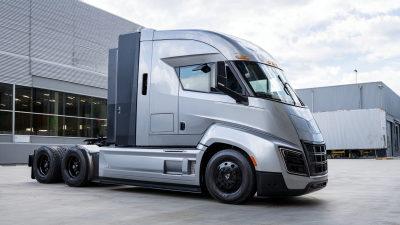
Top Strategies for Sourcing the Best All Electric Truck Globally
-

7 Essential Benefits of Choosing Electric Heavy Duty Trucks for Your Business
-
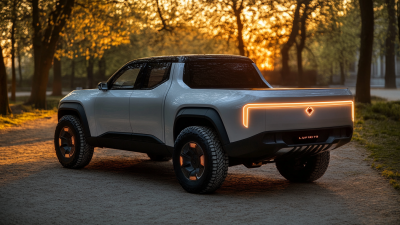
Exploring the Top Innovations in Best Electric Pickup Design and Functionality
-

5 Compelling Reasons to Choose Ev Pickup for Your Sustainable Business Solutions
-
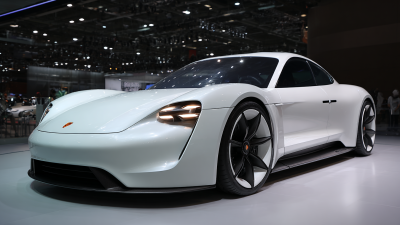
How to Choose the Right New Electric Vehicle for Your Lifestyle
-
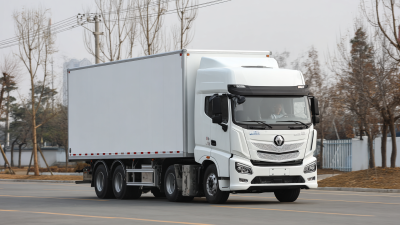
5 Reasons Why Chinese Electric Trucks Are the Future of Transportation
